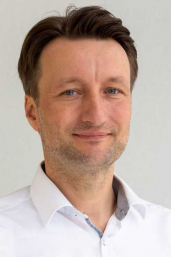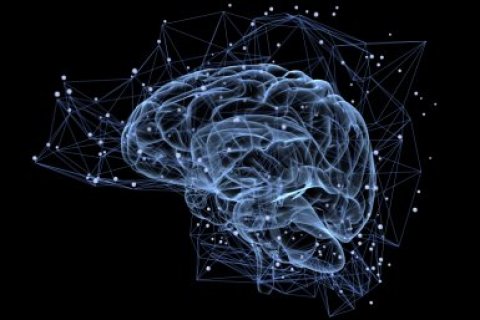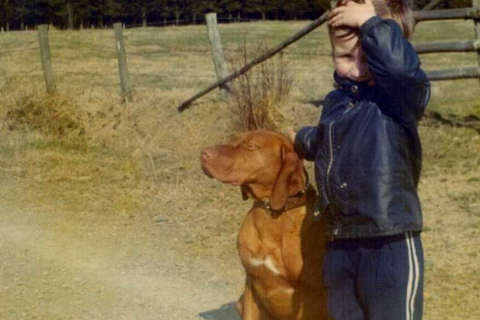'Working together enables you to formulate useful questions faster'
Neurobiologist Gabriël Beckers on ‘The 1001 first days of a child’s life’
Within the research project 'The 1001 first days of a child's life', Dr Gabriël Beckers is investigating what happens in a child's brain during language acquisition. 'If you really want to understand how a thing works, you have to identify the underlying mechanism. When you’re talking about language development, that mechanism is found in the brain.'

To find answers, he is collaborating with Dr Sita Ter Haar to study the brains of songbirds. Just like humans, these birds learn a language from their mother. 'I want to find out what goes on inside the brain when you hear a language for the first time. What exactly does your brain do to assign meaning to the snippets of sound you hear? For instance, how does your brain know which sounds belong together, i.e. which ones combine to form a single word?'
What makes us special
Assistant Professor Gabriël Beckers spends so much time thinking about language in the course of his research that he sometimes has difficulty letting go of it in his day-to-day life. 'The more I learn about language, the crazier it seems to me that we humans are able to understand one another. Everyone speaks their own language, yet we still know precious little about how we learned that language in the first place.' Beckers is fascinated by language development in humans. 'There is reason to suspect that specific mechanisms in the brain are responsible for our ability to master a language. This might be what makes us so special compared to other animals.' He continues to be surprised every day by the ‘bizarre speed’ at which children acquire language.
'The more I learn about language, the crazier it seems to me that we humans are able to understand one another.'
The underlying mechanism of language
The Dynamics of Youth theme ‘The 1001 first days of a child’s life’ studies language and brain development in early childhood. Beckers approaches this development from a neurobiological standpoint, which he feels can offer a valuable contribution. 'If you really want to understand how a thing works, you have to identify the underlying mechanism. When you’re talking about language development, that mechanism is found in the brain.' Beckers acknowledges that cultural aspects play a role in learning a language as well. 'But ultimately, the brain is what links all those external signals together.'

Formulating useful questions faster
In addition to Sita Ter Haar and Gabriël Beckers, the research team also includes (among others) language development experts Elma Blom and Tessel Boerma. Beckers: 'What sets Utrecht University apart is the way it brings together different academic disciplines.' He feels the interaction with linguists is extremely important. 'It enables you to formulate useful questions and valid experiments much faster than you could on your own. As a scientist, there are plenty of topics that interest me. Still, it can be difficult to determine which question is the best one to ask at each stage.' Moreover, there's another type of collaboration with his teammates that Beckers finds enjoyable. 'We often get together to discuss language in general – preferably the kind of sweeping questions that can't be answered with a single experiment. It's amazing how much I learn from those talks!'
Cultural shift within the scientific community
Beckers views the interaction between biologists and linguists on display in this research project as being representative of a 'cultural shift'. 'For many years, researchers working in separate faculties would never have any dealings with one another. In this project, by contrast, we're challenging one another to look beyond our own purviews. While this can require a bit of patience at times, everyone on the team is willing to invest in that regard.'

Gabriël's first 1001 days
'My mother likes to say I was always fiddling about with appliances and machines: the vacuum cleaner, the washing machine and so on. She even caught me exploring the inside of the dryer once.'
Gabriël's other work
Besides his comparative research on speech and language, Gabriël Beckers also conducts research into the neurophysiology of sleep. He collaborates with linguists and biologists both within Utrecht University and internationally, including researchers from the Max Planck Society (Germany), Monash University (Australia), MIT (USA) and the University of Tokyo (Japan). He serves as editor for Scientific Reports and is a Fellow of Cognitive Neuroscience at the University College Utrecht.
Dynamics of Youth research theme
If you want to tackle social problems, it is best to begin with children. The Utrecht ‘Dynamics of Youth’ research theme invests in resilient young people. Researchers from every field are working together to gain a better understanding of child development. How can we help children and young people to grow and develop in our rapidly changing society?

